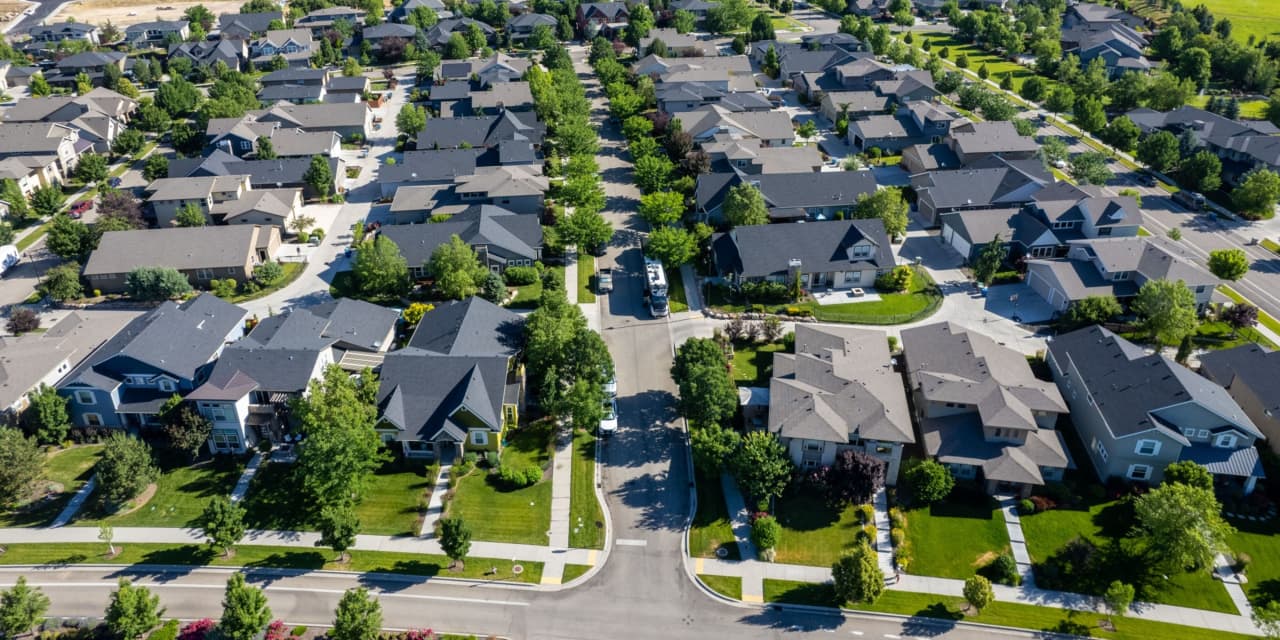It wasn’t so long ago that homes in Boise were a hot commodity. But now?
“Nobody wants to buy a house in Boise right now, and nobody wants to sell a house either,”
Redfin
agent Shauna Pendleton joked recently. The reality isn’t quite as dire: There are buyers and sellers, she said, but their numbers are greatly reduced from the frenzied days early in the pandemic, when sellers could list a house in just about any condition and sell it in a weekend.
The Idaho city became a poster child for the nation’s soaring home prices and frenzied bidding wars—then for its sudden pullback as mortgage rates rose. Prices in Boise climbed 67% from the start of the pandemic to their peak in 2022, then dropped as much as 13% at their trough, according to Federal Housing Finance Agency data. While prices in other metropolitan areas raced to new highs in the first three quarters of 2023, those in Boise and other expensive cities hit hard by rising rates remained languid.
But prices in some of those cities could be on the verge of a rebound, experts say. That’s not entirely bad news for buyers: economists don’t foresee prices returning to their prior frothy pace of increases, and mortgage rates will tick down, easing some of the cost pressure.
That includes Boise, says
Zillow
senior economist Nicole Bachaud. The home listings company projects values in the city to grow 1.9% on an unadjusted basis through the end of November 2024, while prices nationally will be flat in the same time span.
“Home values rose so quickly in Boise that there was a lot of room for a correction in 2022 and 2023 when mortgage rates rose,” Bachaud says. “We now expect Boise to get back to more sustainable growth next year, which puts it near the top in what we are expecting to be a fairly flat market nationally.”
Lower mortgage rates will fuel the rebound. Economists see mortgage rates sliding through the year as inflation eases, with the Mortgage Bankers Association estimating 30-year fixed rates to end the year around 6.1%, down from a recent 6.6% and well below mortgage rates’ 2023 peak near 8%.
Home affordability changed rapidly for buyers across the nation as mortgage rates rose. Rates that went from a historic low of 2.65% in 2021 to October’s 7.79% high added almost $900 a month to the cost of buying a $350,000 home.
That’s a significant hike, but the rise had the most appreciable effect in pricey metros. The buyer of a $500,000 home—roughly Boise’s median home price earlier in the pandemic, according to Redfin—would owe about $1,300 more a month. And in the nation’s most expensive markets, where homes are typically priced near $1 million, the sharp rise in mortgage rates added about $2,500 to a would-be buyer’s monthly payments.
Boise might not be the only mortgage rate-whacked market that may stage a comeback. “In general, metros that saw home price declines over the past year are starting to rebound and will see relatively more price growth over the next year,” CoreLogic chief economist Selma Hepp previously told Barron’s.
Housing markets in Colorado, Oregon, and Washington are also on the turnaround list, as are some California markets, such as Santa Cruz, Santa Rosa, and Napa. These markets are affordable relative to their pandemic peaks, with job and population growth, she adds.
Meanwhile, locales in the Midwest and northeast are likely to remain hot, economists say. Midwestern and Northeastern cities took nine of the 10 top spots in Realtor.com’s ranking of the 100 largest metropolitan areas by expected 2024 price growth, with Detroit and Rochester, N.Y., in the lead.
Zillow last week named Buffalo its top housing market for 2024, Barron’s previously reported. The ranking “is based on an analysis of forecast home value growth, recent housing market velocity and projected changes in the labor market, home construction activity and number of homeowner households,” Zillow said.
Write to Shaina Mishkin at [email protected]
Read the full article here




